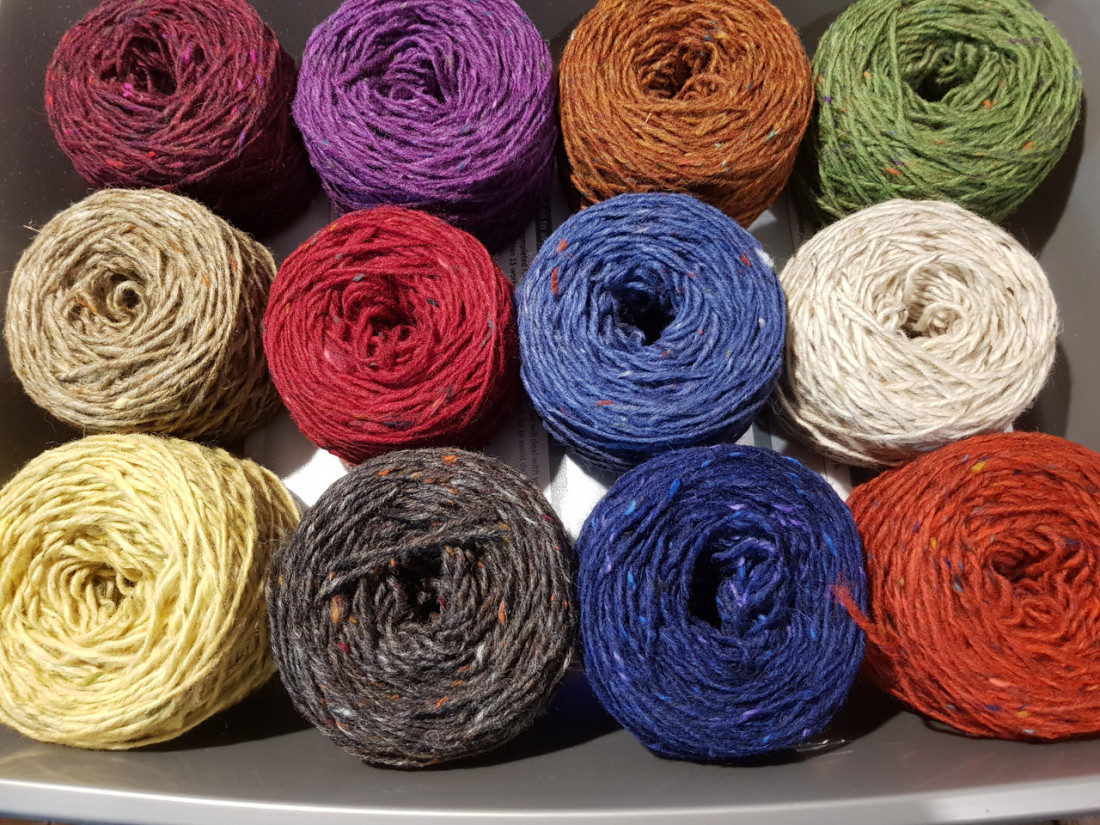by Sabrina Sweeney
Just like champagne must come from the French region, Champagne, and Parma ham can only hail from the province of Parma in Italy, Donegal tweed’s fight for the same recognition will preserve its integrity for generations to come.
There are few people in Donegal who would deny that the county’s rugged landscape has shaped not only our identity but also our artistry.
Among the most vivid expressions of this heritage is the tradition of weaving, an art form that has come to symbolise the creativity and resilience of Donegal people.
Donegal tweed, with its own distinct and ancient path, is not just a fabric; it’s the story of the county woven into threads – the undulating hills, the rugged coastline, the generations of skill passed down through families who have made this craft their life’s work.
It has enjoyed success around the world, featuring on the cover of magazines and gathering fans including actors Sarah Jessica Parker and Patrick Dempsey.
But in an increasingly globalised world, success comes with its own challenges and the integrity of Donegal tweed is at risk from manufacturers churning out cheaper imitations, misappropriating the name and misleading customers.
At present a textile manufacturer anywhere in the world can produce fabric and call it Donegal tweed. Kieran Molloy, a sixth-generation weaver at Molloy & Sons in Ardara, described the issue with clarity in interviews recently when he said: “It’s making people think it’s a craft product, when in fact maybe it’s coming from an enormous mill.”
For a consumer picturing sheep-dotted hillsides and time-honoured weaving traditions, the reality can be a far cry from that vision. Worse still, the livelihoods of Donegal’s skilled weavers are being undermined and mass-produced replicas are increasingly overshadowing the authenticity of the products.
Take Marks & Spencer, for instance. The retailer offers a ‘Donegal’ blazer, woven in England and assembled in Cambodia, at a fraction of the cost of an authentic Donegal tweed jacket from Magee Weaving. M&S stops short of claiming its product is genuine Donegal tweed, nonetheless, the branding creates confusion.
But it’s also much more than a commercial issue; it’s an assault on the essence of our cultural identity.
If we want to see the consequences of failing to protect this heritage, we only have to look to Scotland. Harris Tweed faced a similar battle for survival until the Harris Tweed Act of 1993 safeguarded its authenticity, restricting the name to fabric handwoven in the Outer Hebrides. Without this legal protection, the industry would likely have disappeared.
It’s a lesson Donegal’s weavers are keen to learn from. They are now campaigning for EU Protected Geographical Indication (PGI) status, which would ensure only fabric woven in County Donegal could carry the name “Donegal tweed.”
Patrick Temple, CEO of Magee Weaving and chair of the Donegal Tweed Association, has called it a crucial step. “The wonderful thing about a PGI is that it creates a pure message to the consumer, and they know they’re buying a genuine fabric woven in Donegal,” he said.
The campaign is gathering pace. A 2022 decision by the European Commission to extend PGI protections to non-food products has opened the door to preserving Donegal tweed’s legacy.
Achieving this status would not only protect jobs and skills but also uphold the fabric’s reputation as a symbol of quality and authenticity.
However, securing PGI status won’t happen overnight. The application process could take 12 to 18 months and every day that passes risks further erosion by imitation.
It’s imperative that the Irish government takes swift and decisive action, working with Brussels to champion this cause. The special status isn’t just about economics or safeguarding a product; it’s about preserving the essence of Donegal – its spirit, its people and stories.
Why should we settle for imitations when we have the real thing, crafted with love and care on our own soil?
By protecting it we are securing its future and ensuring that this beautiful, meaningful craft continues to thrive, interlacing its rich history into the generations that will follow.
Let’s not wait until it’s too late. Let’s protect what is uniquely ours, for Donegal and for the world.










